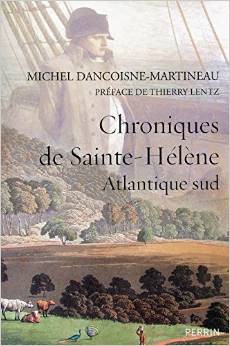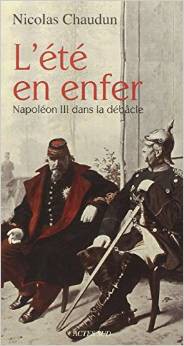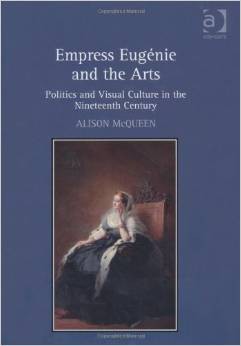History Prizes 2011
 FIRST EMPIRE PRIZE
FIRST EMPIRE PRIZE
Michel DANCOISNE-MARTINEAU, Chroniques de Sainte-Hélène Atlantique sud, Paris, Perrin
In October 1815, Napoleon and his companions, accompanied by a British garrison charged with guarding him, landed on a remote and rocky island in the middle of the South Atlantic. The quiet history of this tiny colony was to be changed forever by this unexpected arrival. With the history of Napoleon Bonaparte on St Helena already well-known, Michel Dancoisne-Martineau approaches it from a different angle, and takes a look at the lives of those who were caught up in the episode. In addition to Hudson Lowe, the reader is introduced to the decidedly odd Reverend Boys, Solomon “the Jew”, the feisty Betsy Balcombe, Cipriani the major-domo, the slaves working on the island, the East India Company’s Chinese natives, and the prostitutes hanging around the prison; in short a microcosm worthy of Balzac’s Comédie humaine. The fifty-four short histories compiled here, based on the (never-before-used) archives in Jamestown, give the historian the chance of catching something they very rarely get, namely: what it was like there at the time.
 SECOND EMPIRE PRIZE
SECOND EMPIRE PRIZE
Nicolas CHAUDUN, L’été en enfer, Napoléon III dans la débâcle, Arles, Actes Sud
August 1870, the imperial army is defeated, the regime collapses, France is invaded.
The sudden collapse of the Second Empire shook the whole of Europe and ushered in one hundred years of unstable decline for France. Much has been written about this “debacle”, this “annus horribilis”. However, in all these writings, there is nothing about Napoleon III, except the eternal refrain of a sovereign wandering the battlefield in search of a death to save him from dishonour.
The futility of a leader dispossessed of power, then stripped of military command, could justify this lack of attention. The impeccable reserve which his companions in misfortune imposed upon themselves is even more understandable. And yet for an author, Napoleon III is the perfectly embodiment of a hero of classical tragedy. There is the premonition of disaster, but also its acceptance, there is the physical suffering that he endured and the cruelty of his relationship with the empress; there is a dramatic tension right from the beginning of the crisis.
Nicolas Chaudun presents the reader with an exciting and well-documented, dramatised account of the closing days of the Second Empire and Napoleon III’s long ordeal, exhausted by illness. Written with great accuracy and poetry, this book does justice to the Emperor.
 PRIZE FOR A BOOK IN A LANGUAGE OTHER THAN FRENCH
PRIZE FOR A BOOK IN A LANGUAGE OTHER THAN FRENCH
Alison McQUEEN, Empress Eugenie and the Arts: Politics and Visual Culture in the Nineteenth Century, Ed. Ashgate
Reconstructing Empress Eugénie’s position as a private collector and a public patron of a broad range of media, this study is the first to examine Eugénie (1826–1920), whose patronage of the arts has been overlooked even by her many biographers. The empress’s patronage and collecting is considered within the context of her political roles in the development of France’s institutions and international relations. Empress Eugénie and the Arts: Politics and Visual Culture in the Nineteenth Century also examines representations of the empress, and the artistic transformation of a Hispanic woman into a leading figure in French politics. From her self-definition as empress through her collections, to her later days in exile in England, art was integral to Eugénie’s social and political position.
